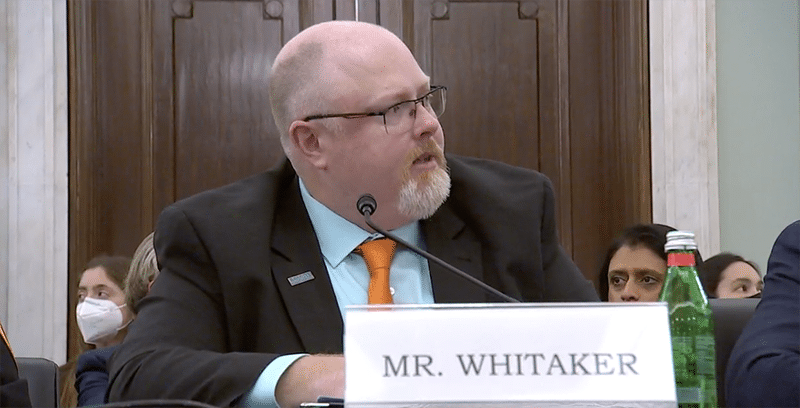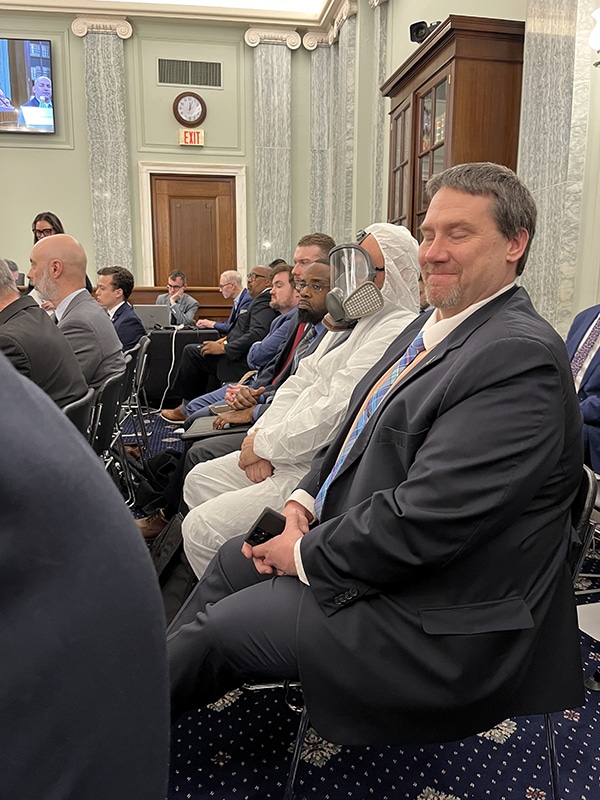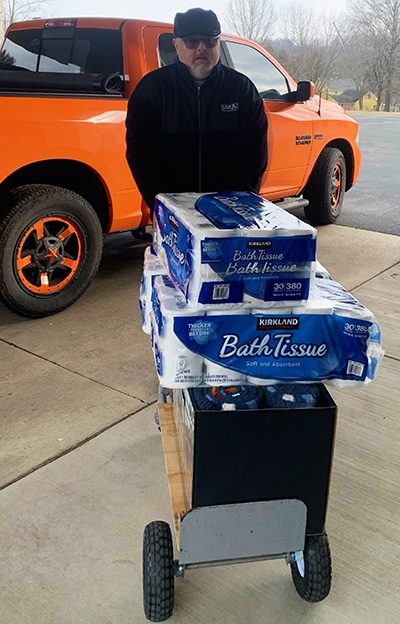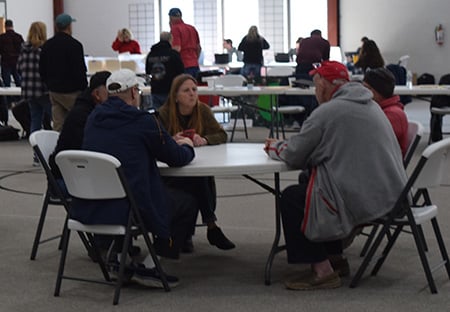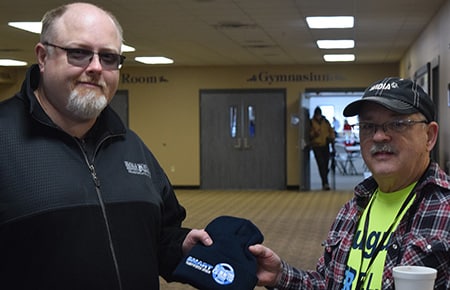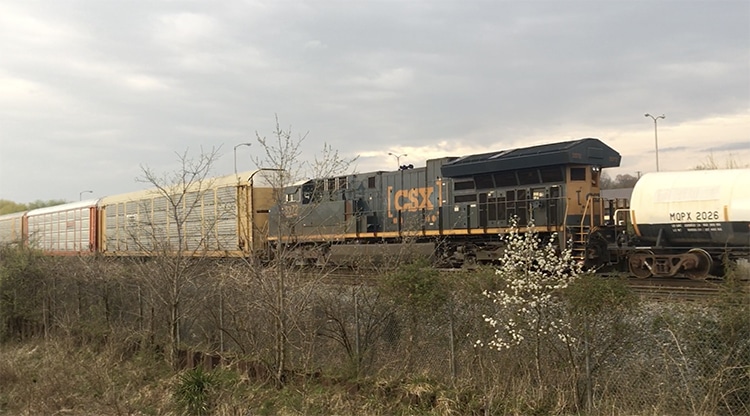
New rail safety rules mandate two-person crews for freight trains traveling in Ohio and require wayside defect detectors be installed 10-15 miles apart.
In 1993, newly elected President Bill Clinton was taking the reins from George H.W. Bush. “Home Improvement,” “Murphy Brown,” and “Murder, She Wrote” were winning the ratings war in American broadcast television (streaming hadn’t been invented yet), and the state of Ohio had passed its most-recent rail safety legislation.
The worlds of politics, entertainment, and railroading have changed dramatically in the 30 years since. On Ohio’s transportation front, freight carrier Conrail has been split among Norfolk Southern and CSX Transportation, trains have tripled in length/tonnage, and technology has revamped every conceivable aspect of the industry, yet the Ohio legislative body has seen zero reason to adapt with the times … until today.
On March 31, Gov. Mike DeWine signed into law House Bill 23 (H.B. 23), which is the state’s transportation budget. This budget included in it two items known as the Ohio Rail Safety Bill with a two-person crew minimum for all freight trains traveling inside Ohio, as well as verbiage that regulates the use of wayside-defect detector technology in the Buckeye State.
Unfortunately, it wasn’t just the hard work and dedication of SMART Transportation Division Ohio State Legislative Director Clyde Whitaker that got these two common-sense rail-safety legislative components across the finish line. As we are all aware, the Feb. 2 Norfolk Southern train derailment in East Palestine near the Pennsylvania border and the industry scrutiny that followed played a large role in forcing state leaders to do some overdue soul searching about safeguarding the state’s communities from the greed of the nation’s rail carriers.
“I’m glad lawmakers placed party politics aside and worked together for the greater good, as the government should. These bipartisan efforts have placed safety above the false narratives of the railroads,” Whitaker said. “Safety of our members in the locomotive cab is now intact, and the public will be much safer going forward. Though a major victory, we do have a lot more to accomplish in Ohio.”
That being said, this legislative victory didn’t occur solely because of what happened in East Palestine. By the time the state and national media turned their attention to Ohio’s railroads, Brother Whitaker had already done the work of preparing the legislation and had built relationships in the state’s Legislature that were required to seize the momentum created by the derailment. Whitaker had also filed complaints with the Federal Railroad Administration months prior to the derailment, citing Norfolk Southern’s tendency to override alerts from defect detectors in order to keep freight moving. The fact that he had identified the problem prior to it leading to the disaster, gave all of his information and arguments about the Ohio Rail Safety Bill additional credence.
Whitaker had also filed complaints with the Federal Railroad Administration months prior to the derailment, citing Norfolk Southern’s tendency to override alerts from defect detectors in order to keep freight moving.
Whitaker and his team knew it was the right time to bring substantive changes in Ohio laws that would help protect our members and the general public for years to come, continuing to solidify bipartisan coalitions in both the Ohio House and Senate and going toe to toe with the rail lobbyists who were sent to Columbus to do the bidding of the carriers.
But Whitaker didn’t do it alone — this accomplishment came as a result of work done both in the present and the groundwork laid by the hard work of prior State Legislative Board officers and SMART-TD members alike, who got the word out to their state legislators that the legislation was necessary.
“I believe in giving credit, where credit is due,” Whitaker said. “Stu Gardner, our former director who is now retired, helped lay the groundwork in this battle, and I’m thankful he had faith in me to finish leading the charge.”
In the end, SLD Whitaker, SMART-TD, railroad workers, railroad families and common sense came out with a hard-fought victory.
On behalf of our members, and the members of every community the railroads roll through each day, SMART- TD would like to thank Gov. DeWine for his leadership on rail safety issues not only in Ohio but also on a national stage.
We would also like to thank the Ohio legislators and their staffs for their diligence and hard work on getting the legislation to the governor’s desk. SMART-TD is proud of the unbelievable work and professionalism we have seen from SLD Whitaker and the State Legislative Board as they shepherded the legislation through the legislative process, and most of all we want to thank all the conductors and SMART engineers who grind every day to move Ohio’s freight and protect its people by ensuring safe and effective rail operation.
Freight rail safety in the news
- Ohio lawmakers demand Norfolk Southern pay for damages caused by Sandusky train derailment last October
WKYC.com
April 5, 2023 - The True Dangers of Long Trains
Pro Publica
April 3, 2023 - US Justice Department sues Norfolk Southern following train derailment in East Palestine
CNN
March 31, 2023 - Ohio lawmakers OK rail safety rules after train derailment
AP News
March 29, 2023 - Railroads Slow Down Push To Reduce Train Crew Sizes, But It May Not Last
WV Public Broadcasting
March 29, 2023 - How Decades of Lax Rules Enable Train Disasters
The Atlantic
March 23, 2023
